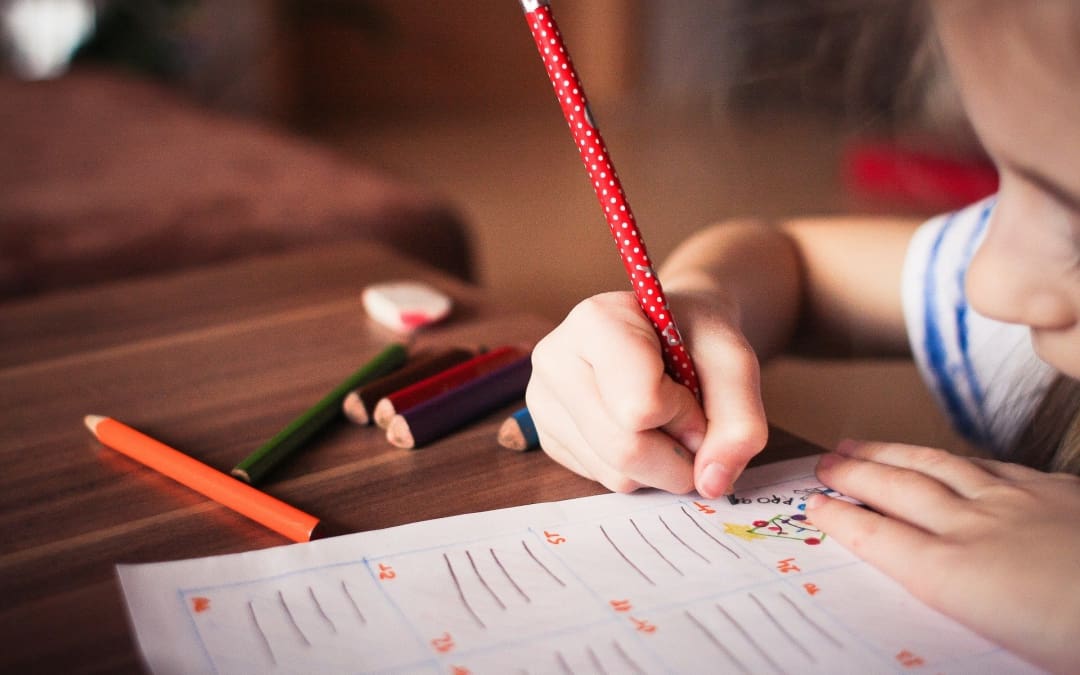Now that the children are at home and the responsibility for their schooling has fallen upon you, the parent, this new responsibility could feel a bit daunting. Teresa de la Campa shares some ideas on how to make the best use of this time and provides tips on how to maximise your child’s learning potential.
Education is what is left after you’ve forgotten everything you have learned. (Albert Einstein)
With our children at home these days, there is more pressure on us mothers than ever before. Not only do we have to be the best mother, but the best home schooling mothers too! And how are we going to achieve this without becoming a “dragon mother” to quote Sue Elvis (Curious Unschoolers. Stories of an Unschooler Family, 2019)? This additional duty may feel like a huge burden, but St Therese of Lisieux has some comforting words of wisdom in Story of a Soul, 1898. She reminds us that God will do the heavy lifting, He’s not expecting more from us than we can give, and he will be with us every step of the way.
Due to circumstances beyond our control we have been given a precious opportunity to spend more time with our children. As they transition from learning at school to learning at home we can help our children by providing a warm and comfortable environment that fosters learning and strengthens family relationships. As each family is unique, the way in which we do this will be unique to our families. But most important is to foster an environment of love and peace in which our children can maximise their learning.
Neurology of learning
What might be helpful to know is how the brain learns. First the brain receives sensory information. This is received and stimulates the Ascending Reticular Activating System (ARAS). This is the ignition system that activates the attention and determines an alert and vigilant state in the rest of the brain. This will only connect and activate our attention if we find something interesting. Sensory information then passes through the emotional core of the brain – the limbic system – including the amygdala and hippocampus and is given emotional meaning. If this sensory experience is pleasant, then the brain releases the neurotransmitter, dopamine. Stimulating dopamine helps to build strong memories that help the learning process enormously. Therefore it is really important to strive to make learning a pleasurable experience. A family is a place of love, joy, encouragement, support and peace and is therefore in many ways the ideal forum for learning and personal growth.
Thought breeds thought; children familiar with great thoughts take as naturally to thinking for themselves as the well-nourished body takes to growing; and we must bear in mind that, physical, intellectual, moral, spiritual growth is the sole end of education. (The Original Home School Series by Charlotte Mason)
Approaches to learning
Today we have a huge variety of styles of educating our children from home. There is the classical Charlotte Mason approach, the Montessori approach, the Unschooling approach. As Suzie Andres says:
God loves variety, and it’s not surprising that he has given us many methods of educating and learning. (A Little Way of Home Schooling, Thirteen Families Discover Catholic Unschooling, Suzie Andres, 2011.)
We can read up on these approaches and see if we can glean some useful information to help us.
Consider the following:
Is education more about learning rather than teaching?
Are our children really learning when we coerce them into work with bribes, rewards, shaming or punishments?
Will children retain knowledge gained in this way?
Does learning take place outside of school hours?
Do children learn from all experiences in their lives or only from the ones that we think of as being educational?
Instead of saying:
“You have to do this”; “Because I know more than you”; “Because I told you to”; “Because you are the child and I am the mother” … etc try: “That looks interesting. Would you like me to help you find out more?”. “I’ve found a new book. Would you like to read it?”. “Yes, I’ll listen if you want to read to me”. “Did you enjoy that story? Would you like to tell me about it?”. “Can I tell you what I learnt?” “Of course, you can have a go”. “What a great day! I love spending time with you”.
Don’t use threats or bribes or punishments or force them to do their school work. Instead use love.
Of all things love is the most potent. (The Secret of Childhood, Maria Montessori, 1966)
Technological help
Evernote is web-based app that allows end users to capture, store and synchronise text, image and video files across multiple computing devices. You can use Evernote for home schooling records or even as a family journal. During this time, if you get anxious because your kids don’t appear to be doing much, jot down all their learning experiences. At the end of the day, you might be surprised by how much your kids are doing and learning without you even realising. You can capture many moments that will be treasured for ever. You could end up with a family journal bursting with wonderful memories.
Make friends with your children
During a catechetical trip to Chile, a young father asked Saint Josemaria for advice on how to balance work and family life. He responded:
The most important business that you have is raising your children … Make friends with your children, that’s the best advice of all.
Be authentic
We want to be good examples to our children, and they deserve an authentic relationship with us in which we show ourselves as we truly are.
Enjoying our hobbies during this quarantine s is necessary. Making time to do what we love doing is very important and essential for the whole family. Our children deserve happy parents and not perfect ones. Have you ever noticed how a feeling of delight is contagious? When you’re excited about the day and all you will learn, your children will pick up on your mood. If you as a mother are full of the love of learning, home schooling will be more successful and certainly more enjoyable for all of you.
Learn from our children
Children are always eager to learn. They always seem willing to have a go. When children play you see their innocent confidence to really try regardless of the possibility of failure. For example, they’ve got the faith to truly believe that they are Spiderman or Elsa, one of the Frozen characters. Imagine if we could apply our children’s faith to the holy Mass? How much would we grow in faith, hope and love.
Make the most of this time
The good is desirable, and what’s desirable is easy to be learnt. Learning doesn’t have to be painful for our children or arduous for us. Home schooling can be enjoyable, fun, delightful. Even though some days are just not fun at all. Sometimes, life is tough and full of suffering. Unexpected things happen. But when family relationships are strong, it’s easier to see that we are part of God’s family. Remember if we can get excited about learning our children will feel the same way. We have to get involved in their education, provide an example of learning for them, enrich our children’s environment and inspire them with new learning experiences. We can get through these days of home schooling and before we know it, they will be back at school. So let’s make the most of every minute we have with them now. Remember we are all a whole army of mums just doing the very best we can for our children.





Recent Comments